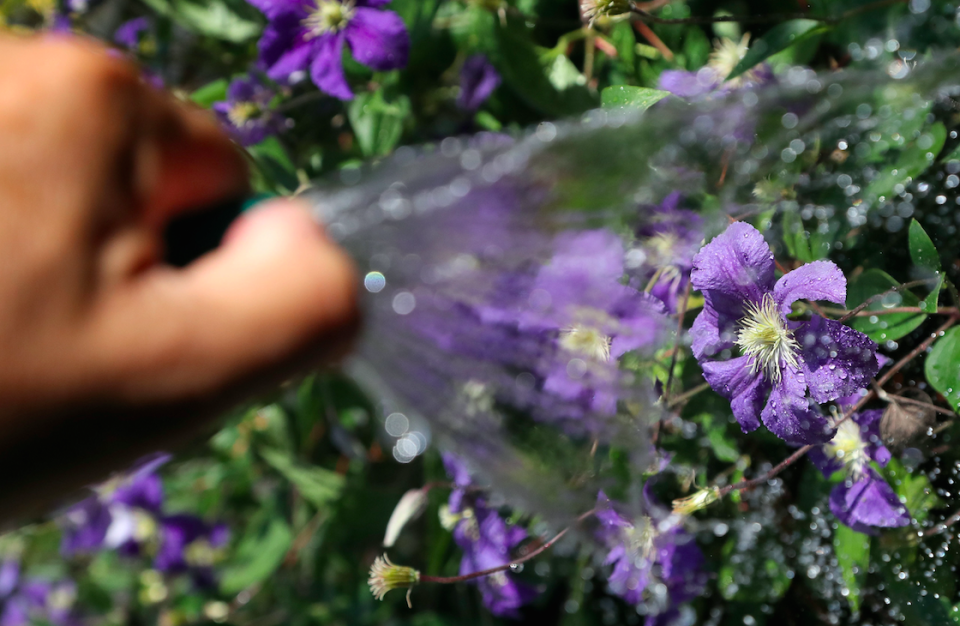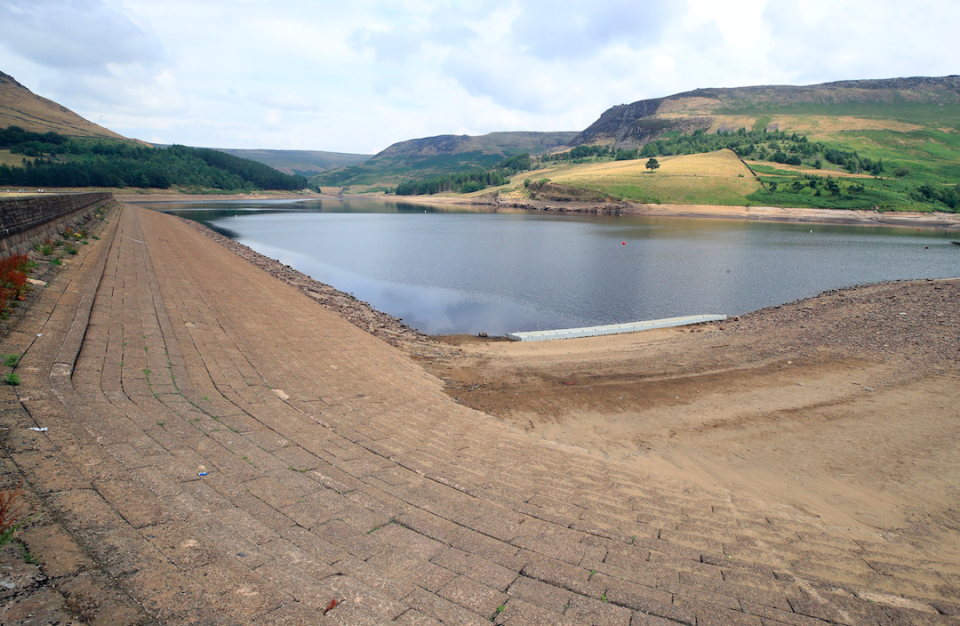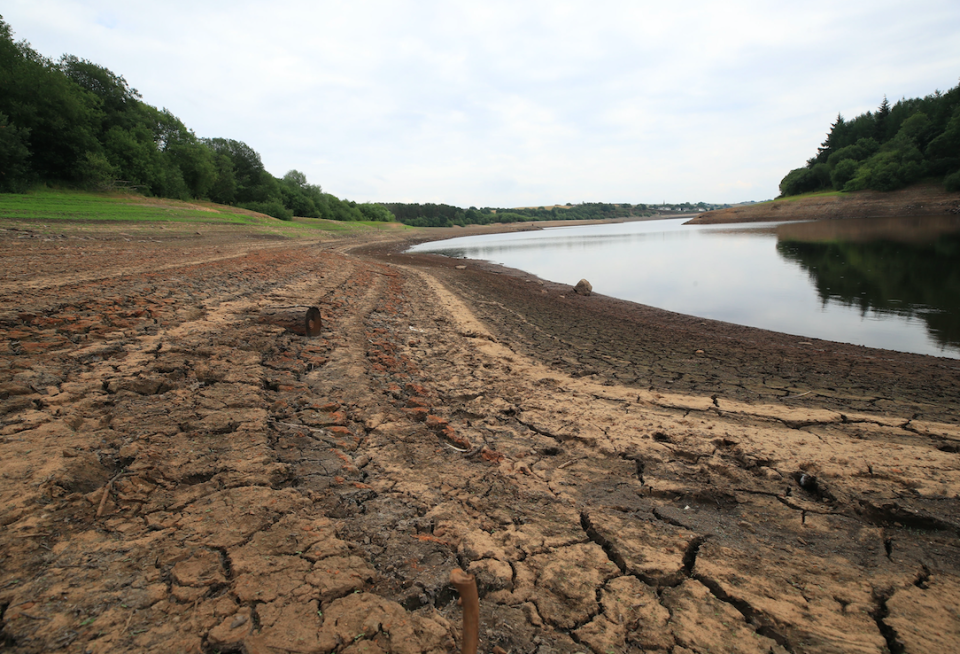Hosepipe ban introduced in north-west of England to combat UK heatwave

The first hosepipe ban of the summer is being introduced in England as a result of the ongoing heatwave.
Millions of people will be affected by the ban, which will apply to the north-west of England and comes into force on Sunday, August 5.
It is being introduced by water company United Utilities, who said it made the decision after enduring what is believed to be the longest British heatwave since 1976.
The firm said customers can provide feedback before August 5 if they believe they should be exempt from the hosepipe ban, known as a Temporary Use Ban.
However, water companies elsewhere said they had no plans to follow suit by introducing a ban.
The ban will apply to domestic customers who get their water supply from United Utilities, with the exception of customers in Carlisle and the north Eden Valley, where supplies remain at reasonable levels.

Martin Padley, United Utilities water services director, said: “Despite some recent rainfall, reservoir levels are still lower than we would expect at this time of year and, with forecasters predicting a return to hot dry weather for the rest of July, we are now at a point where we will need to impose some temporary restrictions on customers.
“It is not a decision we have taken lightly and we are enormously grateful to customers for having helped reduce the demand on our network over the last couple of weeks, but unless we get a period of sustained rainfall before August 5 these restrictions will help us safeguard essential water supplies for longer.”
The ban restricts the use of hosepipes or sprinklers for watering private gardens and washing private cars but customers will still be able to water their gardens with a watering can and wash their vehicles using a bucket and sponge, the firm said, which uses a fraction of the amount of water a hosepipe or sprinkler uses.
MORE: Neighbour installed ‘anti-child’ alarm on her house over ‘nuisance’ kids next door
MORE: Mastermind behind Hatton Garden heist released from prison after three years
A hosepipe uses 540 litres an hour, as much as a family-of-four would use in one day, while a sprinkler left running overnight uses as much water as a family-of-four would use in one week, according to United Utilities.
A hosepipe ban can reduce water usage by 5-10%, according to research by United Kingdom Water Industry Research, which in the North West would amount to over 100 million litres per day.
United Utilities said the ban was alongside the company’s efforts to maintain essential supplies, including maximising water abstraction from ground water supplies, moving water around its regional integrated network of pipes and running a campaign to encourage customers to use water wisely.

Carlisle district and the north-eastern corner of Eden district are exempt because they receive their water from discrete supply network zones fed by local water sources which have not been so badly affected by the overall lack of rainfall, the firm said.
Severn Trent Water, which serves more than 4.2 million homes and businesses in the Midlands and mid-Wales and has faced issues with pumping enough water to meet demand during the heatwave, said reservoirs were in a “healthy position”.
A spokeswoman said: “We have no plans for a hose-pipe ban, we are just asking people to be water-wise.
“So we’re asking people during the hot weather and times of peak demand, just to use water wisely.”

There are no plans for a ban for households served by South Staffs Water, which supplies more than a million customers in the Midlands.
A spokeswoman said: “The water levels in our reservoirs are healthy – we’ve got no issues.”
Anglian Water also said there were no plans for hosepipe ban, with reservoir levels where they should be or slightly above average for the time of year.
Northumbrian Water, Bristol Water and Thames Water all said they were not planning hosepipe bans.
What am I not allowed to do during a hosepipe ban?
A temporary hosepipe ban restricts people from using hosepipes or sprinklers to water private gardens or wash cars.
According to the Water Use (Temporary Bans) Order 2010, using a hose to clean a private boat, to fill a domestic swimming or paddling pool or pond, or to clean walls, windows, paths or patios of a domestic property is also banned.
Each local water company can decide whether certain activities are exempt.
People can still use a watering can to water their gardens, and can wash their cars using a bucket and sponge.
During a ban, people are also encouraged to think of ways to save water – for example by taking shorter showers or turning off taps while brushing their teeth.
Who does the ban apply to?
The ban, due to come into effect on Sunday August 5, applies to domestic customers in the north west of England who get their water supply from United Utilities.
Customers in Carlisle and the north Eden Valley are exempt, as water levels in those areas remain at reasonable levels.

In Northern Ireland, a hosepipe ban was introduced at the end of June owing to increased demand.
Water companies elsewhere say they have no plans to introduce bans of their own, but have urged customers to continue to do their bit in conserving water during the dry spell.
What can hosepipes still be used for during the ban?
Exemptions to the ban can include using a hose for “health and safety reasons”, such as removing or minimising any risk to human or animal health or safety, or preventing or controlling the spread of disease.
People can also still fill a home birthing pool, clean graffiti off public buildings or fill water troughs for animals.
What could happen if I flout the ban?
Utility firms encourage people report anyone they think has been breaking a hosepipe ban. Anyone found guilty can be prosecuted in a criminal court and fined up to £1,000.
How long will the ban last?
Water companies can introduce a hosepipe ban for as long as they deem necessary.

 Yahoo News
Yahoo News 
